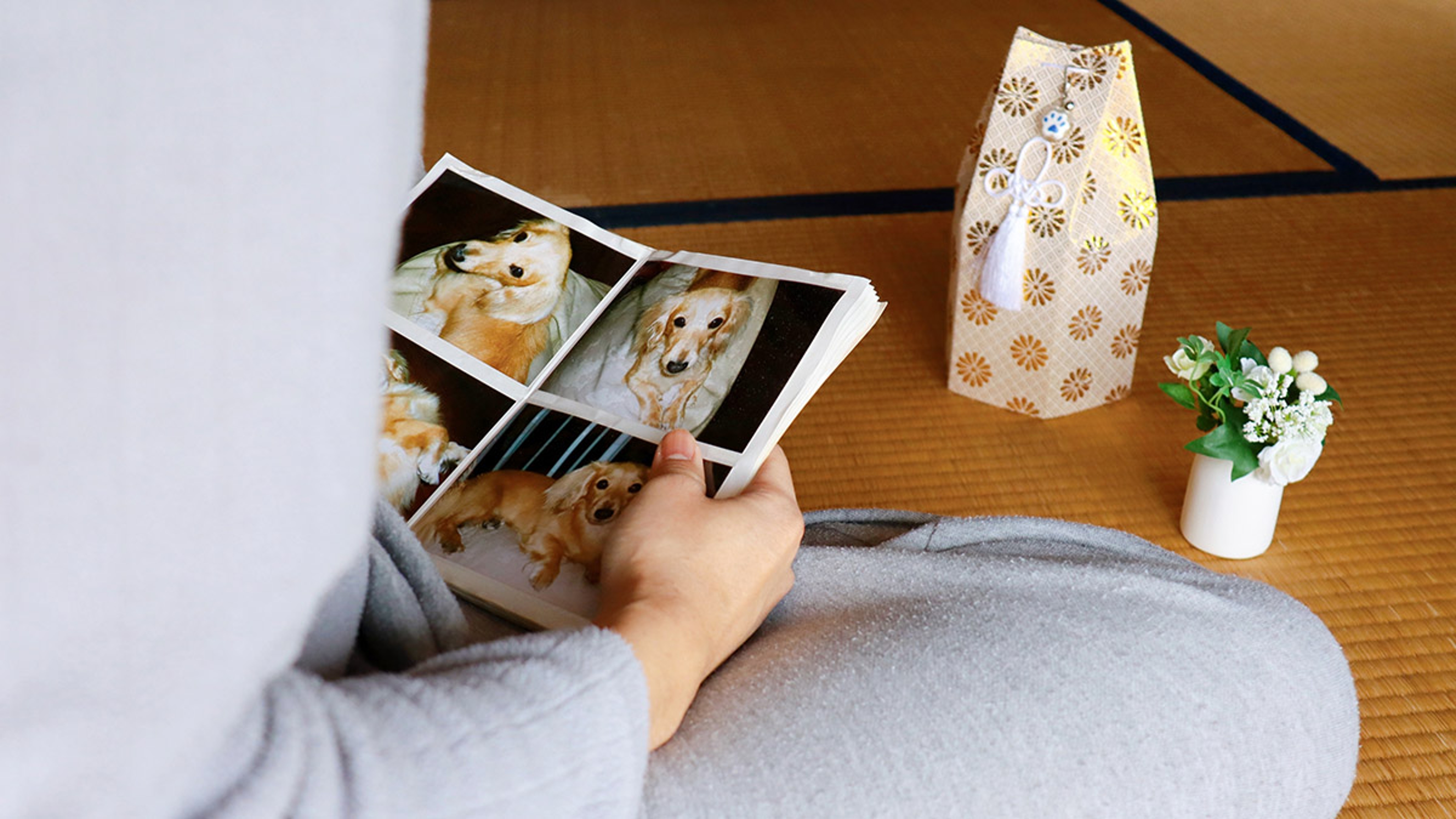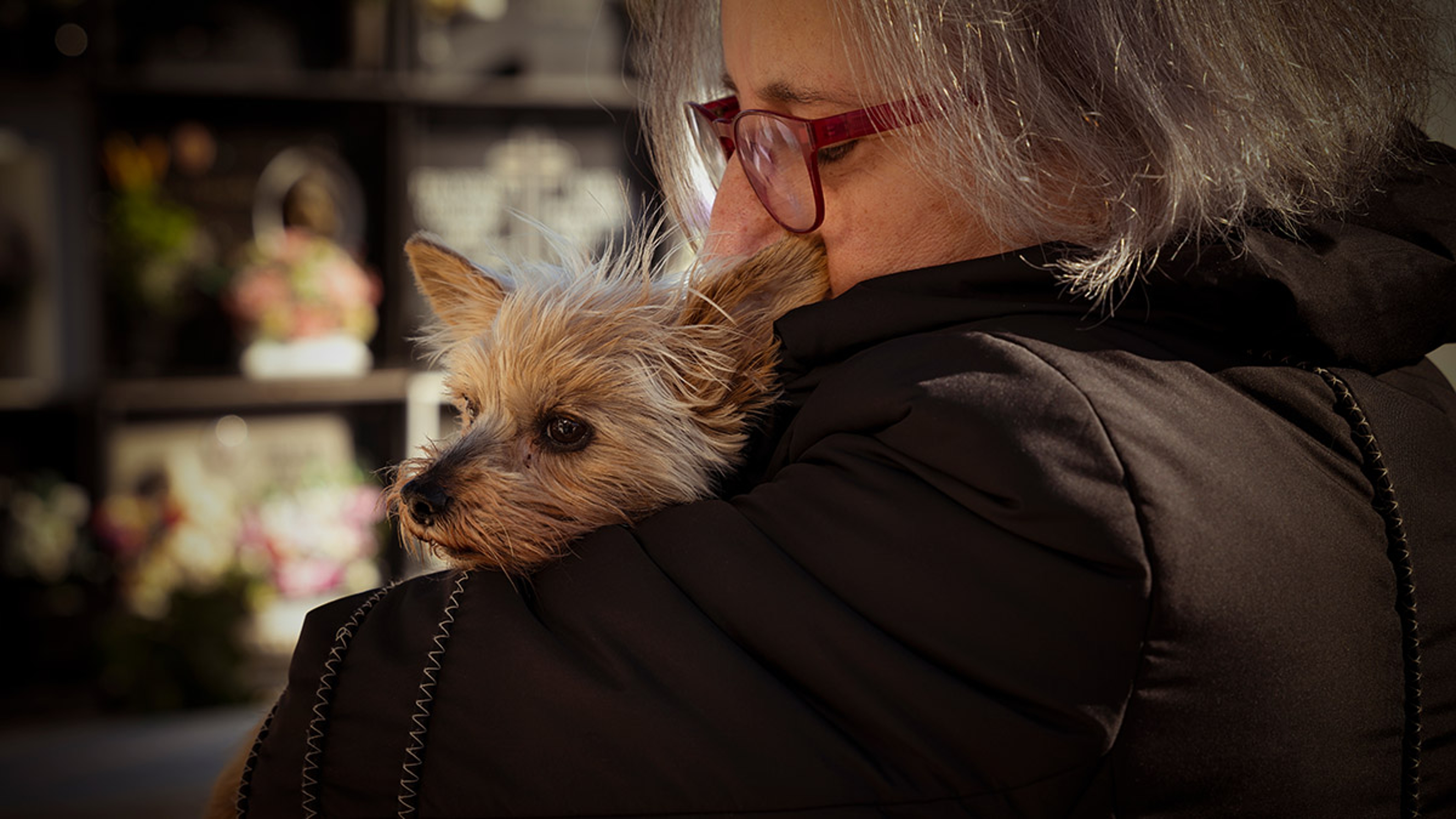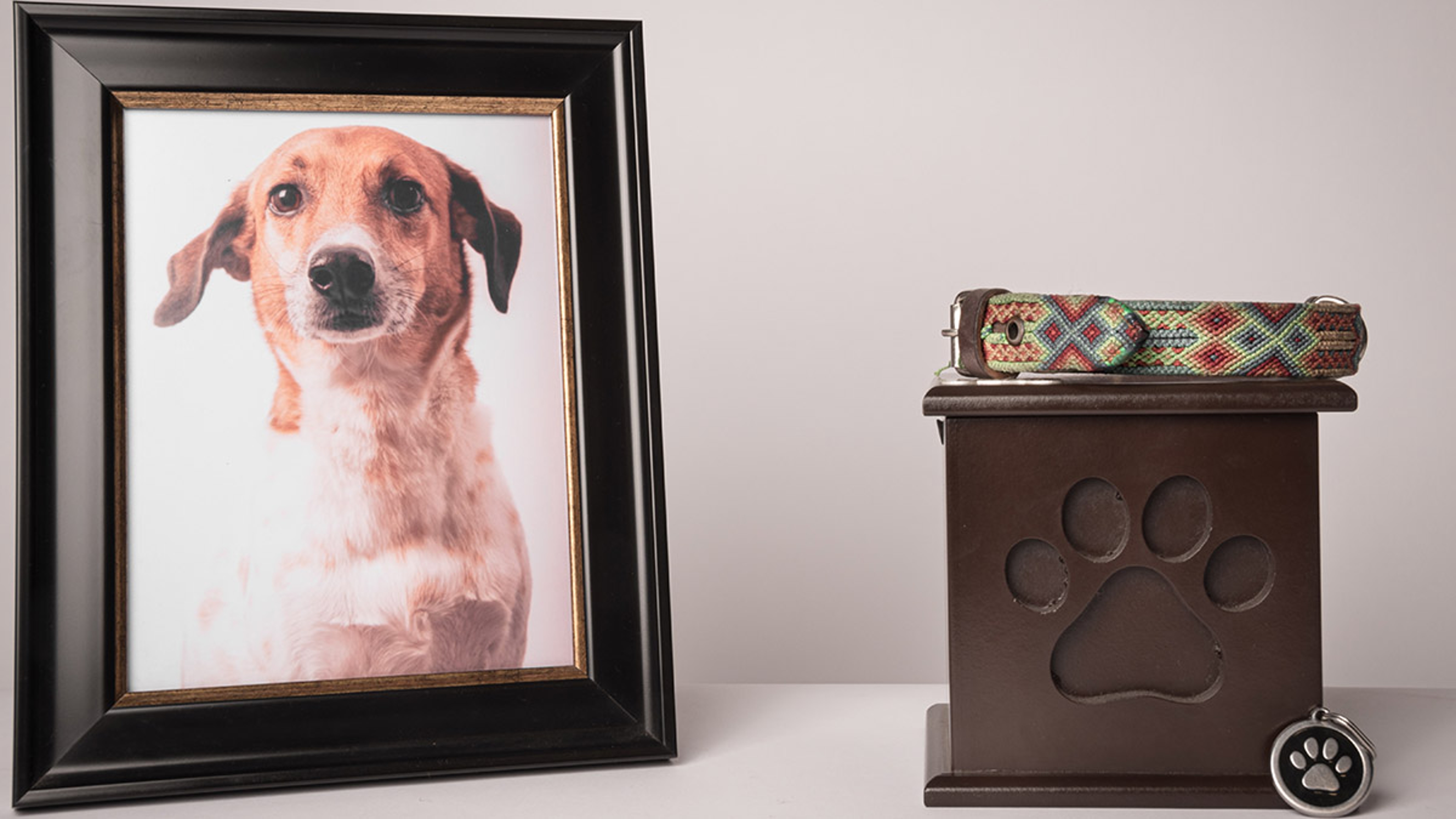Typically, to love a pet is to lose a pet. But even though these animals tend to have much shorter lifespans than humans, we choose to have them because of the deep bond we form with them and the unconditional love they provide. And with 70 percent of American households — or about 85 million homes — owning a pet, according to the American Pet Products Association, the majority of us understand these benefits firsthand.
Most pet owners have such a deep relationship with their pets that when they lose one, the emotions they feel can be profound and hard to put into words. But dealing with the loss of a pet is no different, or less important, than remembering a person who has left us.
In a recent “Light After Loss" Facebook Live episode, Modern Loss' Rebecca Soffer hosted a discussion with E.B. Bartels, author of "Good Grief: On Loving Pets, Here and Hereafter," a narrative nonfiction book about loving and losing animals. Here are some key moments from their conversation.
What are some things can we do for ourselves after the loss of a pet?

- Legitimize your feelings. A lot of people internalize the comments we frequently hear (“It's just a dog") and end up trying to talk themselves out of the deep grief they are feeling by saying “It's not like it was a family member or a friend." Losing a pet is as legitimate a loss as any other, and so, just as with all other types of grief, don't “should" yourself, or try stifle or contain it.
- Ask people to witness your grief. It can feel good to go through your memories and curate an album to share online. This gives you time to create some space to reflect on the relationship. Once you do this, ask people to share their own memories of your animal — you may get stories that you might never have learned about. And consider turning the album into a printed scrapbook. (This is also a great way to help kids process their grief.)
- Reach out and connect with other people who get it — even online. On the third Sunday of each month, Perfect Paws Pet Ministry hosts a Zoom gathering with people all over the world to celebrate and remember their pets.
What are some mourning rituals we can do for our pets?
There aren't a lot of set rituals for mourning pets, which is both good and bad. On the one hand, it can feel uncomfortable after the loss of a pet if you don't know what to do. On the other, this can free us up to figure out what feels right for us.

Here are five ideas for how to mourn a pet.
- Adapt the rituals you might do for a human death to your pet: have a wake, sit shiva, or even ask friends to come by the night before an animal is euthanized to say goodbye.
- If you have other pets in the house, let them see your pet after it has died. This allows them to process what has happened and say their own goodbyes. It's also important for them to view your grief and sit with you during it.
- Spend time with other animals. As any pet owner knows, this can be very therapeutic. Petting dogs release oxytocin in the brain, and even watching fish can lower your blood pressure.
- Consider burying your pet in a pet cemetery (or, at least, making a habit of visiting them wherever you are to feel close to your animal). No animal is buried in a pet cemetery out of obligation; rather, they are there because of the people who want to celebrate them even in death. You can leave offerings like squeaky toys, their favorite food, or even an old shoe they used to love gnawing on. Wherever you travel around the world, you can visit a pet cemetery and feel the same love others felt for their pets that you felt for yours.
- Write an obituary. This healing exercise can help you process your emotions and put all your favorite memories in one place, so that years from now you have something to go back and read. This is another good activity to do with children.
How can we help those who have not experienced the loss of a pet better understand what we're going through?

Ask that person to remember what if felt like to experience a hard loss in their life, be it a breakup, divorce, or death. Even if they can't imagine being so attached to a cat, for example, it will make it easier for them to put themselves in the pet griever's shoes.
What should we do about people around us who aren't helpful in our grief?
Don't waste time trying to convince someone of your grief who doesn't want to try to understand. Millions of people around the world are open to connecting with each other through the love and loss of their pets. (And remember to extend that mindset to people who don't "get it" with other types of grief, too.)
This article was authored by ModernLoss.com, which offers candid conversation about grief and meaningful community throughout the long arc of loss.







